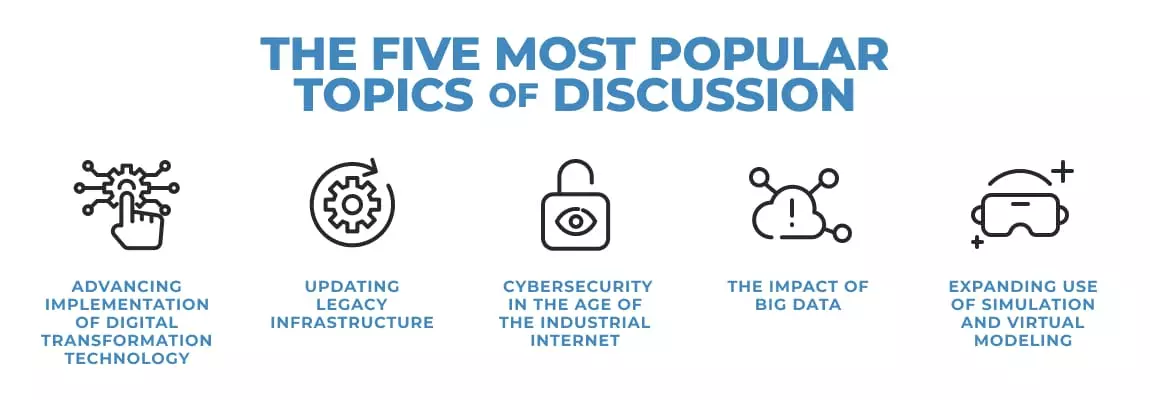5 Automation and Controls topics that Engineers can't Resist

Marketing to automation and controls engineers is not about delivering generic solutions — it’s about engaging in sophisticated, meaningful conversations. Engineers are at the forefront of technological change, balancing cost reduction, productivity improvements and ROI.
However, these professionals are constantly bombarded with content claiming to have solutions to their challenges. To connect, you must provide in-depth, relevant information about the issues that matter most.
Where to Start the Conversation
Before crafting content, ensure it falls into one of these essential categories:
🔹 Implementation Strategies – How and when to expand smart technologies in manufacturing systems
🔹 Technical Advice – Technology selection, programming and control platforms, intelligent components and workflows
🔹 Professional Development – Resources and organizations that keep them informed and up to date
🔹 Everyday Tips – Managing suppliers, planning for new technologies and training the next generation of engineers
By focusing on these key areas, you can build credibility and foster meaningful dialogue with engineers.

Through experience and research, we’ve identified some of the most compelling topics for automation and controls engineers.
1. Advancing Implementation of Digital Transformation Technology
Digital transformation is reshaping factory automation, enabling manufacturers to connect smart sensors, actuators, control devices and machines in real-time. Engineers want to know:
🔹 Which technologies should they prioritize for integration?
🔹 How can they implement embedded sensors and autonomous control systems?
🔹 What strategies can bridge the gap between older systems and modern industrial data networks?
Engineers need actionable insights on how to seamlessly transition into Industry 4.0 (and 5.0) without disrupting operations.
2. Updating Legacy Infrastructure
Many manufacturing systems are built on decades-old infrastructure. While automation is moving towards AI, robotics and machine learning, engineers face the challenge of modernizing their systems without discarding valuable equipment. Engineers are concerned with:
🔹 How can they retrofit smart capabilities into legacy systems?
🔹 What is the most cost-effective approach to digital upgrades?
🔹 How can robotics and automation be deployed without a complete system overhaul?
Providing solutions for these pain points helps engineers make incremental progress toward a fully digitalized factory floor.
3. Cybersecurity in the Age of the Industrial Internet
With factories embedding intelligent devices into production lines, cybersecurity is a growing concern. Engineers worry about:
🔹 How vulnerable are industrial systems to cyberattacks?
🔹 Can wireless factory networks remain secure?
🔹 What cybersecurity standards and best practices should they follow?
Building confidence in secure, connected systems is crucial as the Industrial Internet of Things (IIoT) expands. Engineers need to stay informed and active with their IT teams to safeguard digital assets.
4. The Impact of Big Data
Modern manufacturing generates massive volumes of data. The challenge is transforming this raw data into meaningful insights. Engineers are asking:
🔹 How can data be aggregated, processed and shared across the organization?
🔹 What role does AI play in optimizing data analysis?
🔹 How can real-time data improve machine-level performance and enterprise-wide efficiency?
Providing real-world examples of AI-driven data strategies can help engineers harness big data for smarter decision-making.
5. Expanding Use of Simulation and Virtual Modeling
Engineers are increasingly turning to digital simulation and virtual modeling to streamline product development and optimize manufacturing workflows. Key questions include:
🔹 How can simulation tools shorten machine development cycles?
🔹 What insights can virtual modeling provide to prevent costly redesigns?
🔹 What changes in engineering culture and processes are necessary to fully leverage these technologies?
Demonstrating the power of simulation can help engineers embrace these tools as essential components of modern automation.
What We Know for Sure
While this list isn’t exhaustive, these five topics consistently rank as top concerns for automation and controls professionals.
What remains constant is their focus on practical, applicable solutions. Engineers don’t just want theoretical information — they seek concrete advice backed by case studies, technical webinars and real-world demonstrations that showcase a solution in action.
Final Thoughts
The shift toward digital transformation is how automation evolves in the 21st century.
By engaging engineers in meaningful conversations about these topics, companies can build trust, establish thought leadership and position themselves as valuable partners in the future of automation.
📖 Want to dive deeper? Read our Marketing to Automation & Controls Engineers Essential Guide
Sign Up for our Newsletter - Get agency updates, industry trends and valuable resources delivered directly to you.
Todd Walter - Senior Public Relations Manager
During his 25+ year career in public relations and marketing, Todd has worked in both the corporate and agency environments. He has worked with leading consumer brands, as well as many B2B companies in automation, component manufacturing, chemicals, HVAC, biopharmaceuticals and more.




